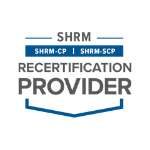Often disabled people face discrimination in hiring. If they get jobs, they may face discrimination at work, too. Workplace bullying is ableism in action. Although one employee may bully another, bullying may also be structural: built into workplace culture or policies. Because disabled employees contribute not only their talents but their diverse life experiences, organizations strive to retain them. This is a two-part, interactive webinar. In Part 1, Dr. Oldfield will talk about why disabled people are bullied at work and what organizations can do about it. In Part 2, participants will break into groups, and each group will work together to apply learnings from Part 1 to a case study.


